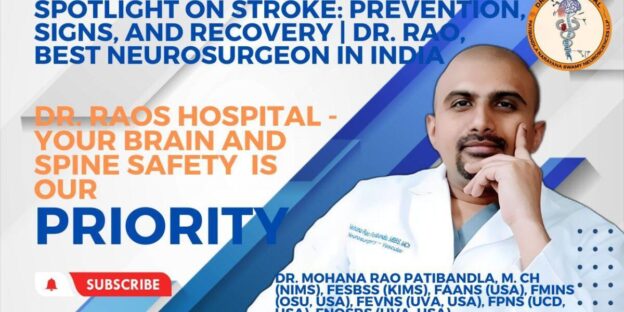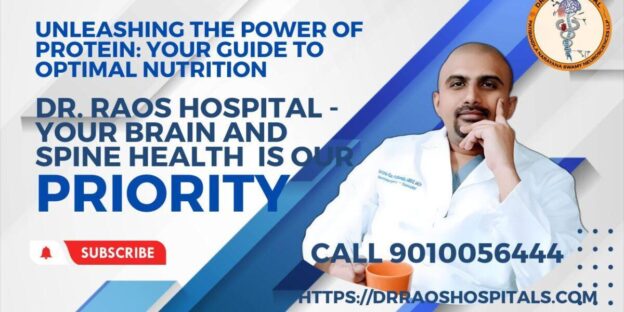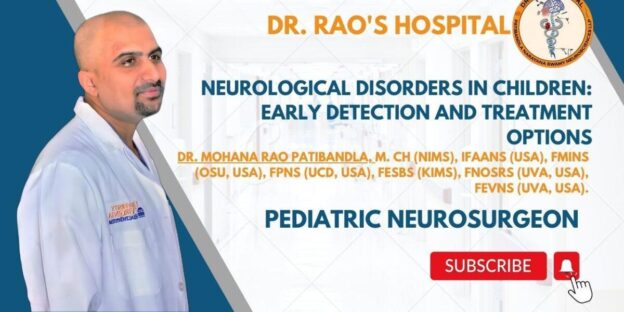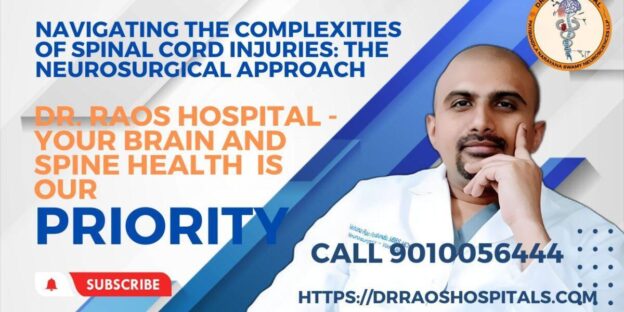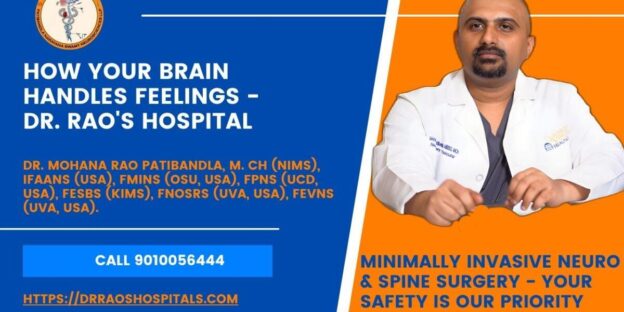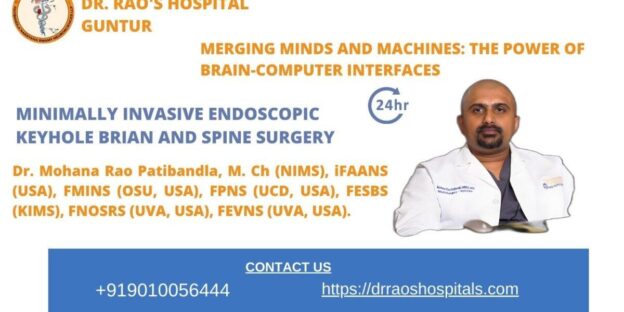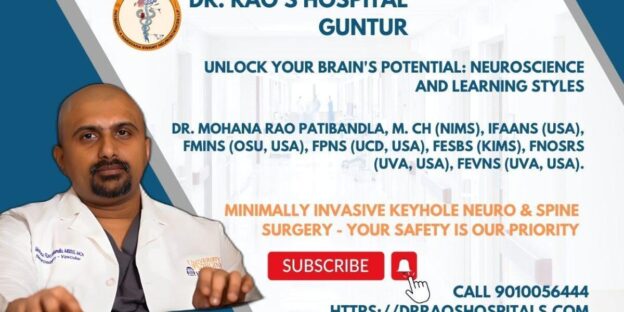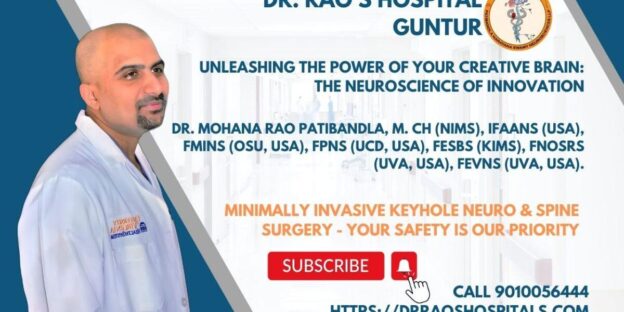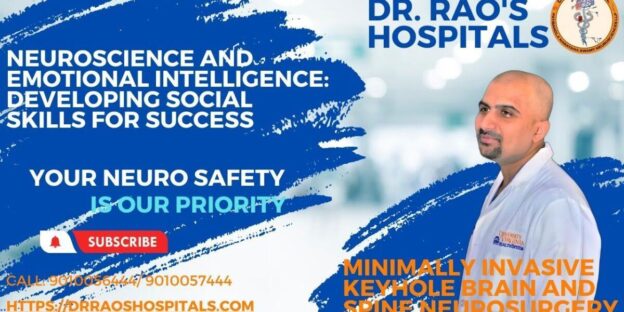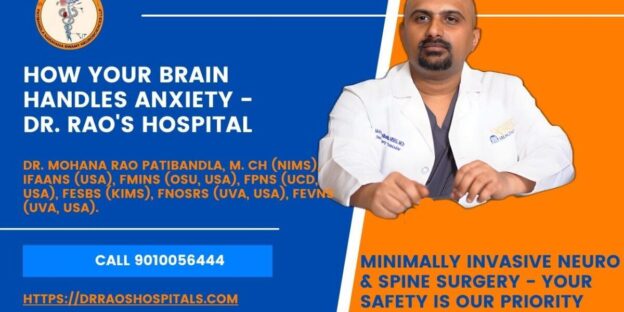Spotlight on Stroke: Prevention, Signs, and Recovery | Dr. Rao, Best Neurosurgeon in India
Spotlight on Stroke: Prevention, Signs, and Recovery
This insightful blog explores the world of stroke prevention, early recognition, and recovery. Discover the expertise of Dr. Rao, the best neurosurgeon in India, and his commitment to exceptional stroke care at Dr. Rao’s Hospital. Gain valuable knowledge to protect yourself and your loved ones from the devastating effects of stroke.
Introduction
A stroke is a severe medical condition that can have life-altering consequences. It occurs when the blood supply to the brain is interrupted, leading to damage and potentially impairing various bodily functions. As a leading cause of disability and death worldwide, stroke prevention, early recognition of warning signs, and timely medical intervention are crucial. In this blog, we shine a spotlight on stroke, exploring prevention strategies, recognizing signs and symptoms, and highlighting the role of experts like Dr. Rao, the best neurosurgeon in India, who specializes in endovascular neurosurgery fellowship and practices at Dr. Rao’s Hospital, renowned for its exceptional neurosurgical care.
Understanding Stroke
A stroke can occur when a blood vessel carrying oxygen and nutrients to the brain is blocked by a clot (ischemic stroke) or ruptures (hemorrhagic stroke). Both types of strokes require immediate medical attention to minimize brain damage and improve outcomes. Dr. Rao, with his extensive expertise and specialization in endovascular neurosurgery, plays a crucial role in treating stroke patients at Dr. Rao’s Hospital, recognized as one of the best neurosurgery hospitals in India.
Preventing Stroke
Prevention is vital when it comes to stroke. Lifestyle factors such as maintaining a healthy diet, exercising regularly, managing blood pressure and cholesterol levels, avoiding smoking, and limiting alcohol consumption can significantly reduce the risk of stroke. Dr. Rao and his team at Dr. Rao’s Hospital emphasize the importance of regular check-ups, as early detection and management of underlying health conditions can help prevent stroke.
Recognizing the Signs and Symptoms
Recognizing the signs and symptoms of stroke is vital for timely intervention. Common signs include sudden numbness or weakness in the face, arm, or leg (especially on one side of the body), confusion, trouble speaking or understanding, severe headache, dizziness, and difficulty walking. If any of these symptoms occur, it is crucial to seek immediate medical attention. Dr. Rao’s Hospital has advanced diagnostic tools and a skilled team to provide quick and accurate stroke assessment.
Emergency Response and Treatment
In cases of stroke, time is of the essence. As a highly-skilled neurosurgeon specializing in endovascular procedures, Dr. Rao is experienced in performing minimally invasive techniques to restore blood flow to the brain and minimize damage. The comprehensive stroke care unit at Dr. Rao’s Hospital ensures prompt response and optimal treatment, including thrombolytic therapy, endovascular interventions, and rehabilitation programs to facilitate recovery.
Recovery and Rehabilitation
Stroke recovery is a complex and individualized process. Dr. Rao’s Hospital offers comprehensive rehabilitation services to promote optimal recovery and improve the quality of life for stroke survivors. This includes physical therapy, occupational therapy, speech therapy, and psychological support. The multidisciplinary team, led by Dr. Rao, works closely with patients and their families to develop personalized treatment plans tailored to their unique needs.
Conclusion
Stroke is a significant health concern that demands attention and action. By understanding stroke prevention strategies, recognizing the signs and symptoms, and seeking immediate medical care, we can improve outcomes and enhance the chances of recovery. Dr. Rao, the best neurosurgeon in India, with his expertise in endovascular neurosurgery, is at the forefront of stroke management at Dr. Rao’s Hospital, a renowned institution for neurosurgical excellence. Together, we can raise awareness about stroke, empower individuals with knowledge, and work towards reducing the impact of this devastating condition on our communities.

